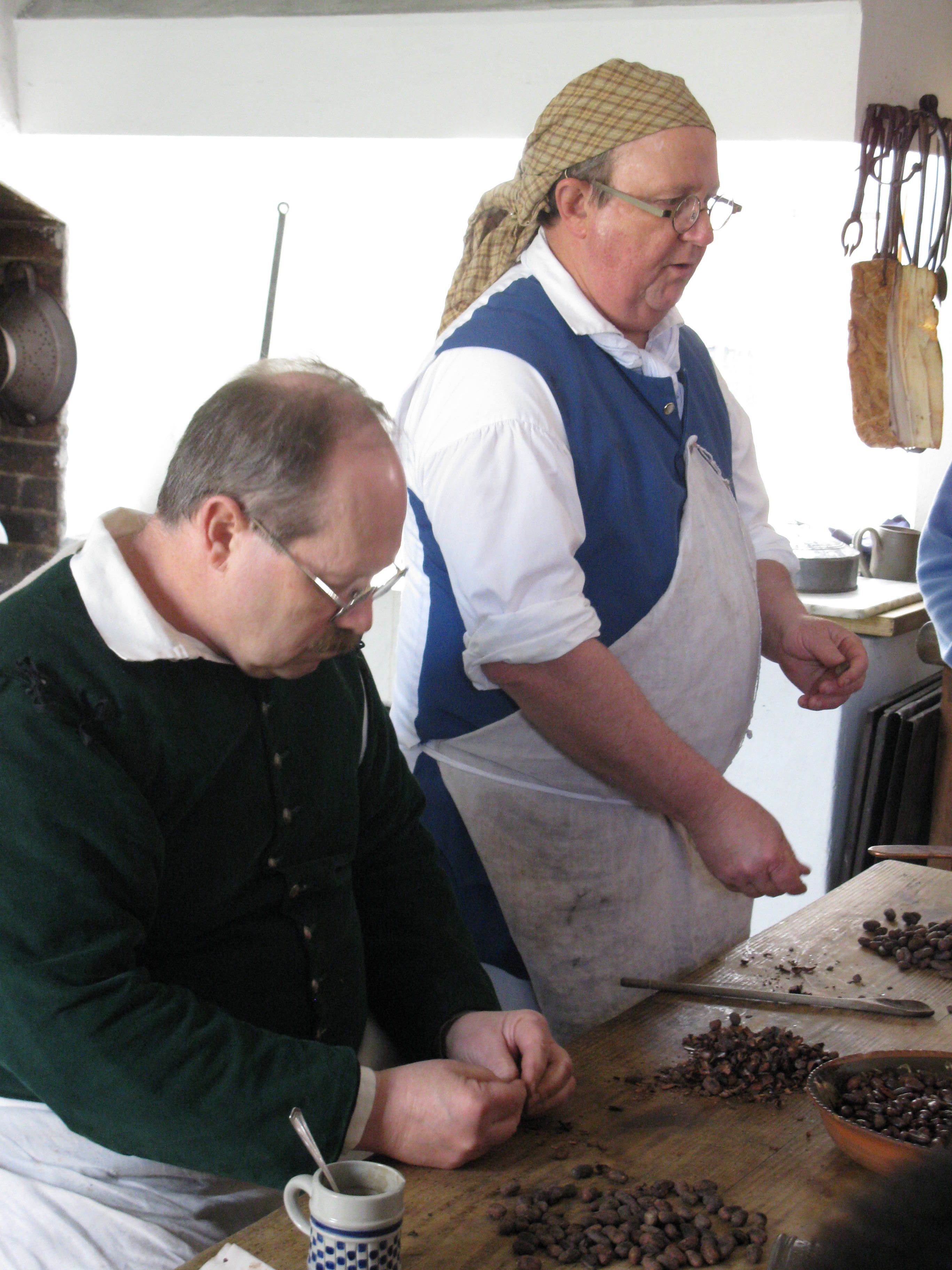As I explore the many artisanal British chocolate purveyors in London this week of July 4th, I am reminded that pre-revolutionary American colonial chocolate experiences, both plentiful and maligned, melted into religious life.
There are those who say that around the year 1690 Pilgrims traveling to Plymouth Rock via Amsterdam stayed there in a house near the city's chocolate establishments. The Pilgrims termed that chocolate "the Devil's food." Later, a chocolate cake popular in Amsterdam was named "Devil's Food." This view fused into an early American religious mind-set, where chocolate represented evil, perhaps because it indulged the senses and distracted from work and worship. At least one New England moralistic ascetic exhorted, "Serious Christians in the Professing Country to think of forgoing amongst other Things, Chocolate."
Domestic colonial chocolate beverage imbibing seeped happily into other ecclesiastical settings, perhaps influenced by the reports of British royal chocolate piety, as in this dispatch about King George III from London, 1761:
"His majesty riseth at five o'clock every morning, lights his own candle ... dresseth himself, then calleth a servant to bring him bread, butter and chocolate. At six he goeth to chapel where he hath morning prayers in the most religious manner."
Several ministers of this time enjoyed their chocolate drink. Chocolate bolstered the daily routine of Thomas Prince (1687-1758), reverend of Boston's Old South Church and a historian of New England. After his graduation from Harvard and his wedding, the reverend's daily routine included rising at 5:00 a.m., reading the Bible in his study, waking the rest of the family at 6:30 a.m., gathering all for family prayers, and enjoying "only the Porringer [pewter dish] of chocolate for Breakfast." Military chaplains were rationed a certain amount of chocolate: "Chaplain of a brigade shall be entitled to draw only six galons of Rum, either four pounds of Coffee or Chocolate ... monthly." The diary of Samuel Sewall -- who studied for the ministry, became a chief justice of Massachusetts, and was a judge at the Salem witch trials -- noted that his pastoral ministrations bundled visits and sermons with gifts of chocolate. Sewall himself drank chocolate on occasion. Chocolate was served in houses of mourning as well.
In a plea that resonates today, another minister complained that he could not maintain his standard of living, including his customary chocolate drinking, since his congregation had not provided him with cost of living increases. His protest to the Boston Evening Post, signed by "Your humble Servant, T.W.," lamented:
"Upwards of 40 years ago I was ordained Pastor of a Church in ... and by the unanimous Vote of my People had settled on me ... with which I could buy ... Chocolate.... You will readily perceive by comparing these Accounts together that the same Articles one with another have risen more than seven and an half for one since my first Settlement with my People, whereas they could never yet be prevailed on to raise my Salary more than three for one.... And I may venture to say, this is the Truth of the Case with respect to most of the Ministers throughout the Province."
Chocolate nourished several of these men of God and seemingly enhanced their ministries. In tribute to the popularity of chocolate as a substitute for tea in the Colonies following the Boston Tea Party, I suggest that we raise some chocolate to toast American Independence.

